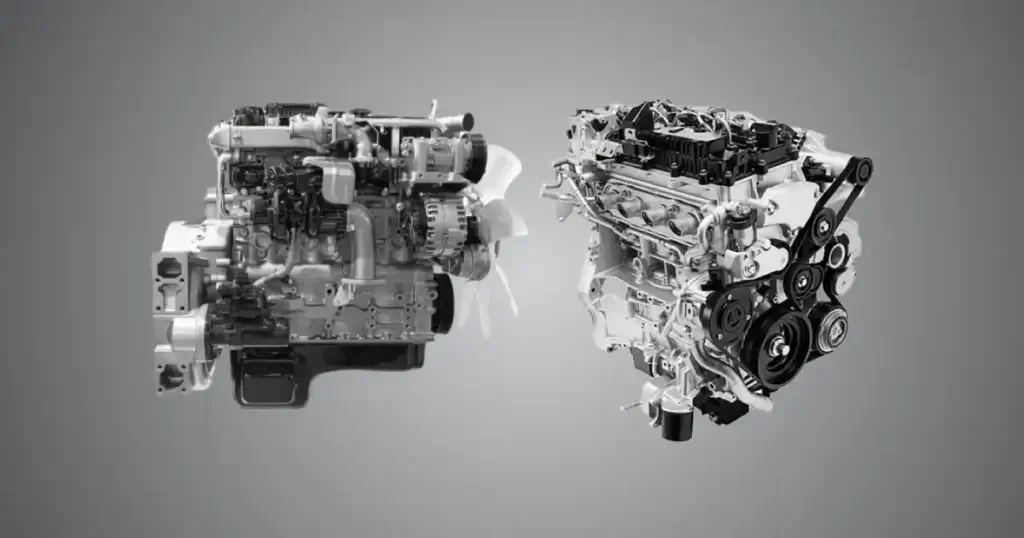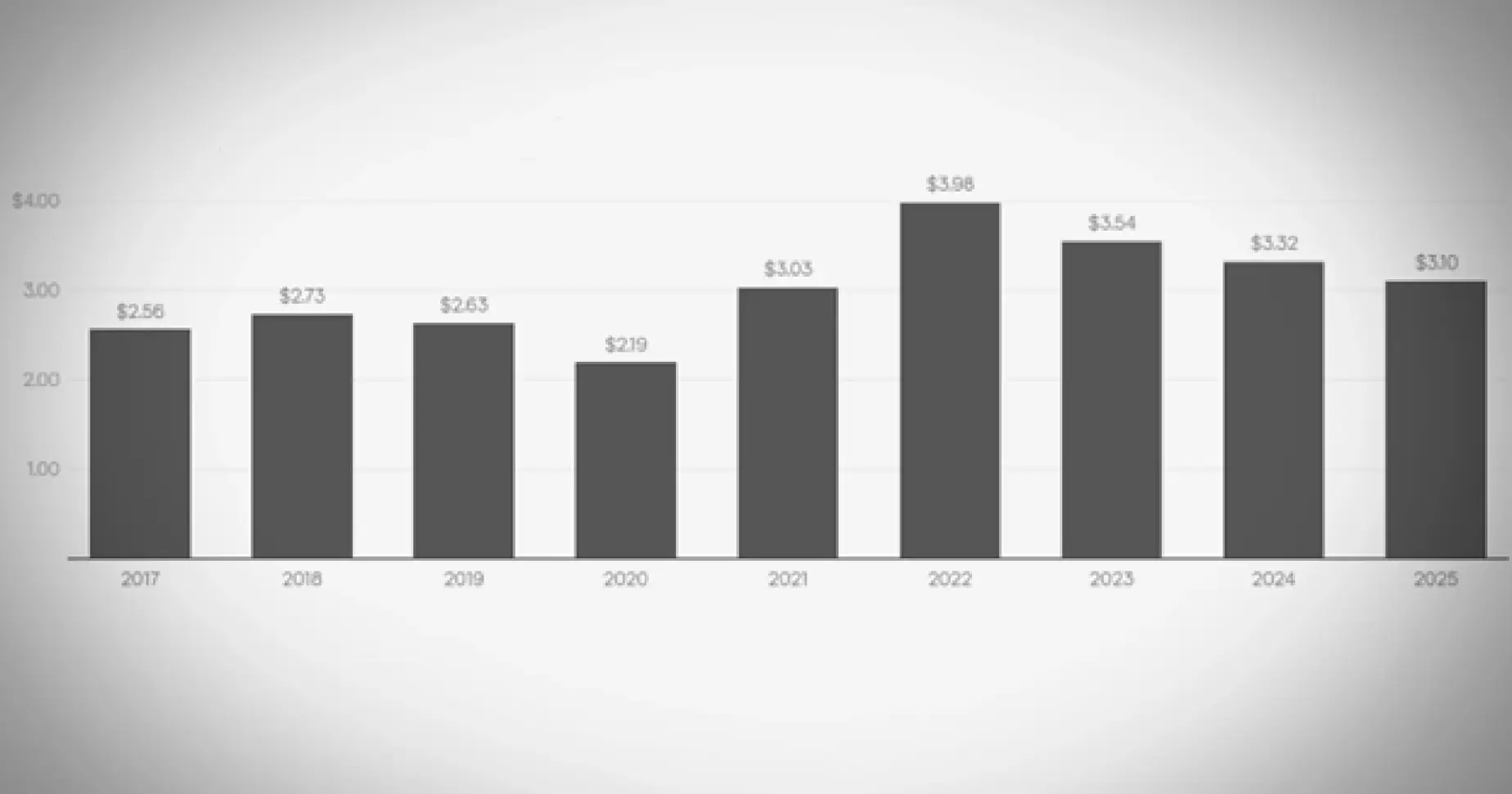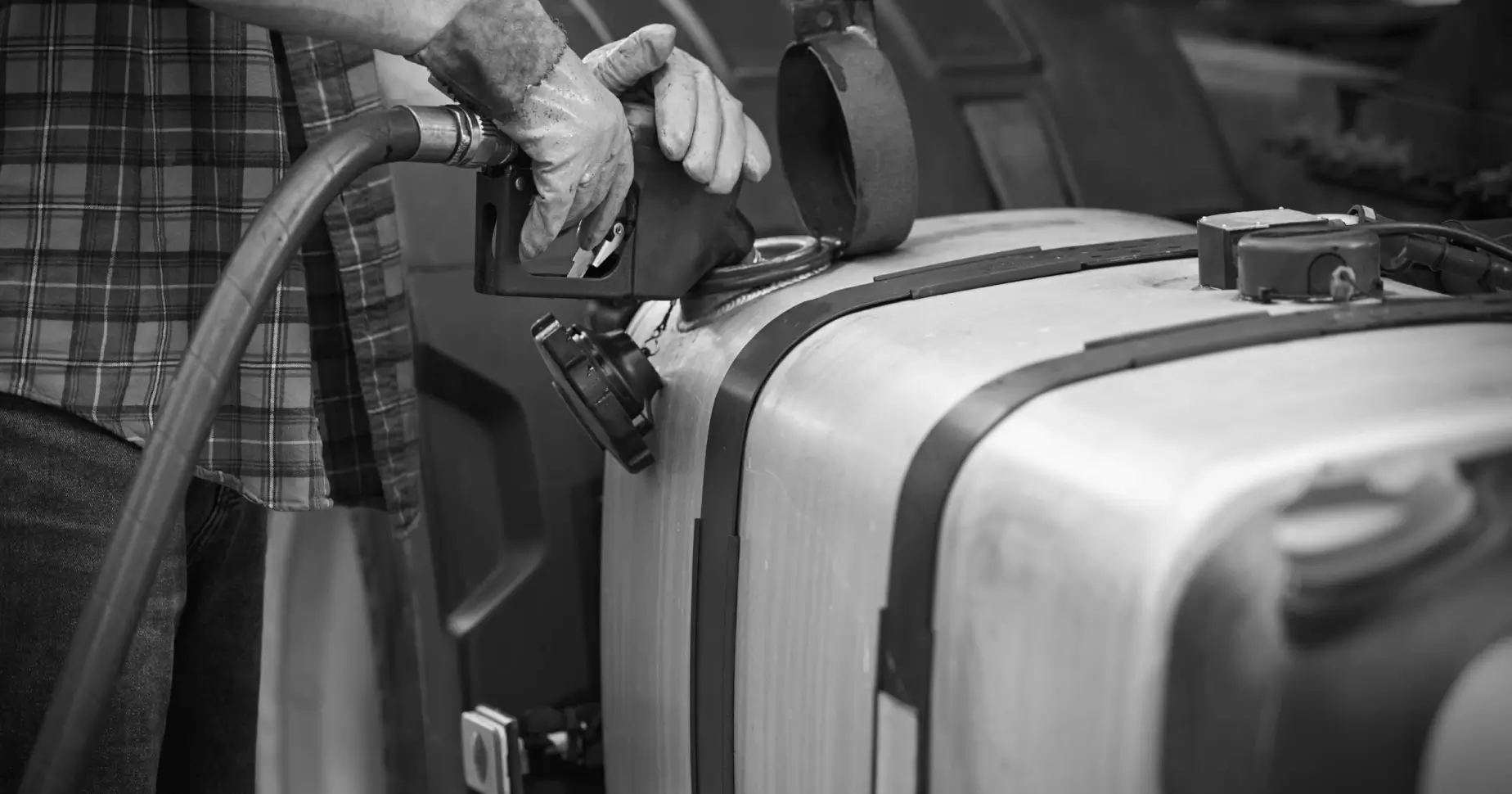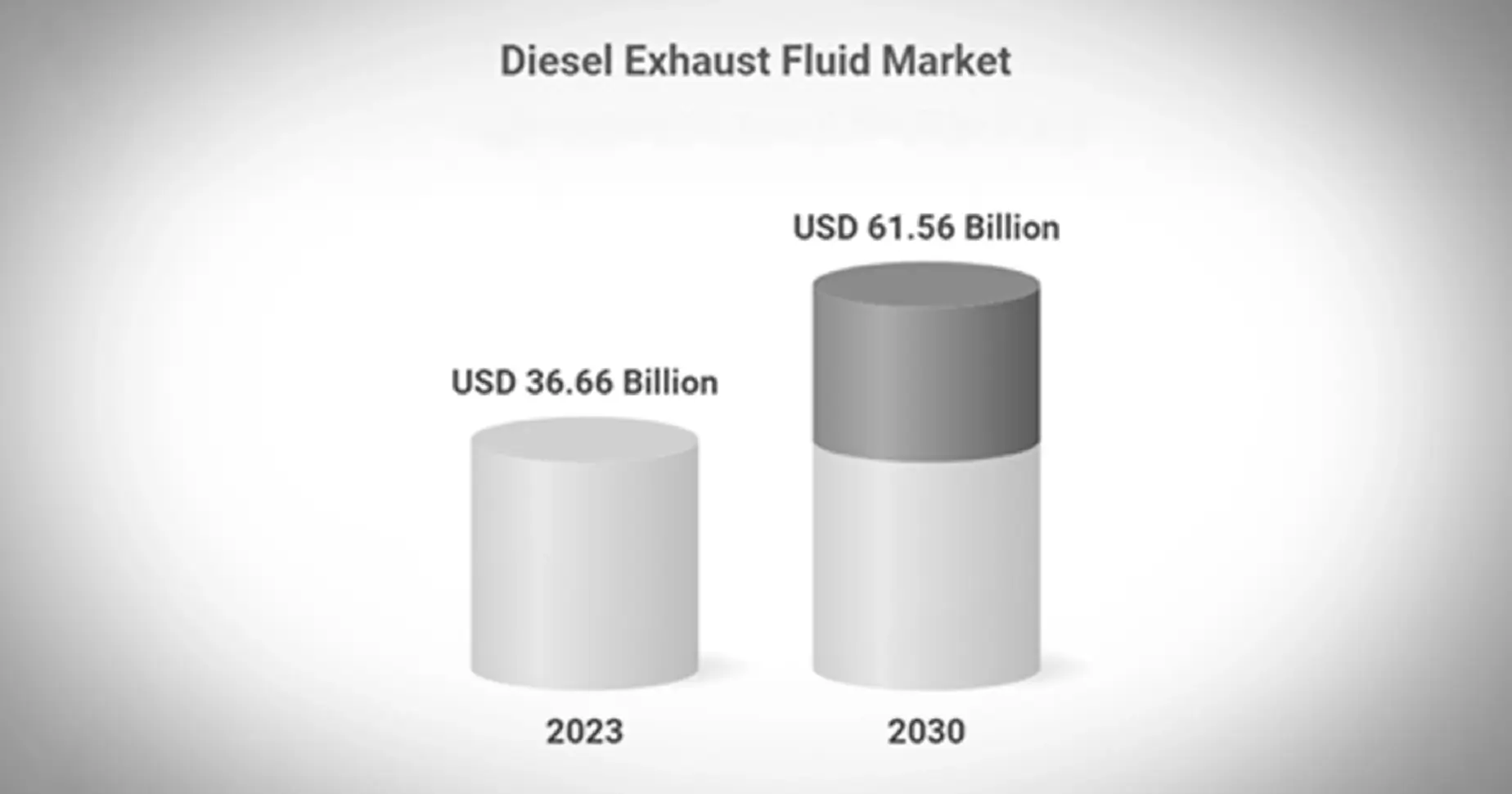Are you curious to know which engine, gas or diesel, packs more power and efficiency? The comparison of diesel vs. gas engines has always been a hot topic. Some regard diesel engines as the powerhouse of energy and efficiency, while others consider gas engines to be superior for cars. However, it depends on the vehicle’s use and the nature of the business or workload for which they are used.
A diesel engine is an internal combustion engine that runs on diesel fuel. It’s known for high torque, fuel efficiency, and durability. In contrast, gas engines use gasoline and are known for their smooth performance and lower emissions.
The purpose of assessing the difference between gas and diesel engines is to determine which type offers better efficiency and power. A thorough comparison between the two can help you choose the right engine based on factors like fuel economy, performance, and the specific tasks you need to accomplish.
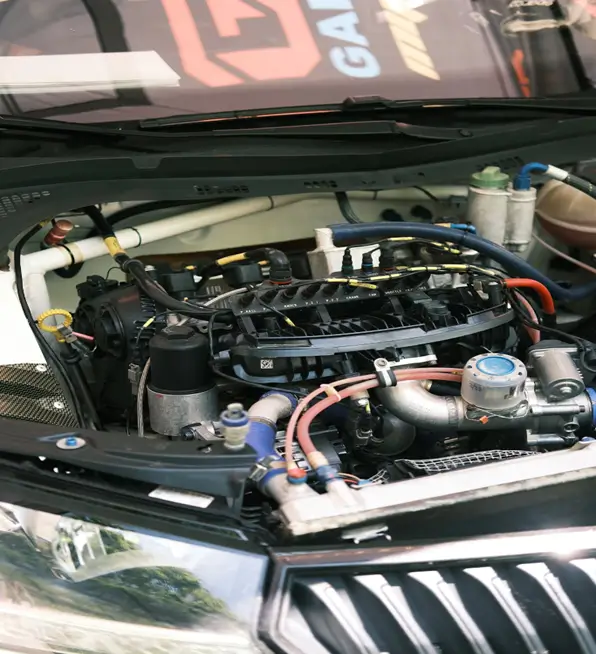
Comparison Between Diesel Engines vs Gas Engines
Each engine has its strengths and weaknesses, which can impact fuel efficiency, power, and overall performance. Here we’ll explain ten critical differences between diesel and gas engines to help you choose the right engine. Through this comparison, you will also be able to understand gas vs diesel engines’ advantages and disadvantages.
1. Fuel Types and Combustion Process
Gasoline engines run on petrol, which is less dense, while diesel engines use diesel, which has more energy. Gasoline comes in different types based on its octane level, like Regular (87), Midgrade (89–90), and Premium (91–94). Diesel also has different varieties, like off-road diesel, biodiesel, and green diesel.
Both gasoline and diesel engines are internal combustion engines (ICEs) that turn fuel into energy by burning it. The main difference is in how they burn fuel. Gasoline engines mix fuel with air, compress it, and then use a spark plug to ignite it. Diesel engines compress the air first, and the heat from that compression ignites the fuel. Diesel engines don’t use spark plugs in their combustion process.
2. Engine Design and Components
Diesel and gas engines have different designs and components. Diesel engines are built to be strong and durable because they handle higher pressure from compressed air. They don’t have spark plugs; instead, they use fuel injectors for ignition. Diesel engines also have heavier parts, like the crankshaft and pistons, which makes them more durable, powerful, and long-lasting compared to gasoline engines. In contrast, gasoline engines use spark plugs to ignite the air-fuel mixture and have lower compression levels. Their components, such as the crankshaft and pistons, are lighter and less durable because they are designed to handle less stress.
3. Thermal Efficiency
Diesel engines are about 20% more thermally efficient than gas engines. They convert more of the fuel’s energy into power because diesel fuel is thicker and has higher energy density. The higher thermal efficiency means diesel engines can handle heavy loads and have better fuel economy. However, diesel engines can emit more harmful pollutants like CO and NOx, which can harm the environment. So, this answers a common query: is gas or diesel better for the environment? Fortunately, modern technology, like catalytic converters, helps reduce these emissions and protect the environment.
4. Fuel Efficiency
According to the U.S. Department of Energy, diesel engines provide 30-35% better fuel economy compared to gas engines. Diesel engines are built with a higher compression ratio and a more efficient combustion process, which enhances their fuel economy. They are more fuel-efficient at higher speeds and are suitable for motorway use. In city driving diesel engines might burn more fuel because of stop and go traffic.
Unlike diesel engines, petrol engines offer better fuel economy at lower speeds and in city driving conditions. Although gas engines are less efficient for longer rides, you can improve fuel mileage with smooth, steady driving. Avoid aggressive driving, and keep in mind that heavier loads make both gas and diesel engines use more fuel.
5. Torque and Horsepower
Torque is the engine’s ability to do work and is described as a rotational force. Horsepower measures the engine’s power output over time. Gasoline engines usually have the edge in horsepower, while diesels typically offer higher torque. Gas engines produce more horsepower at higher RPMs. They excel in situations where high-speed performance is needed, such as in sports cars.
Diesel engines are suitable for tasks that involve towing or pulling heavy loads, especially at low speeds. They generate more torque at lower RPMs, which is great for moving heavy items and climbing steep grades. If towing capacity is crucial for your needs, a diesel engine would be the better choice.
6. Acceleration and Speed
Diesel engines outperform gas engines in acceleration when it comes to pulling heavy loads and starting from a stop due to their high torque. However, they do not reach the top speeds of gas engines. On the other hand, gasoline engines achieve faster acceleration and higher speeds due to their higher horsepower.
7. Performance in Different Vehicles
Diesel engines are perfect for heavy-duty applications like trucks, buses, and construction machinery because they provide the high torque and durability needed for towing and carrying heavy loads. Their efficiency makes them suitable for long-distance travel and continuous operations.
Alternatively, gasoline engines are commonly used in cars and light trucks. They offer smooth rides and higher speeds which makes them a preferable option for casual driving and short trips. Gas engines are preferred for passenger vehicles due to their lower emissions and more responsive performance.
8. Maintenance Requirements
Diesel engines need more frequent oil changes and filter replacements that cost higher compared to petrol engines. Their maintenance involves higher labor costs due to the complexity of accessing engine components. Conversely, gasoline engines have longer intervals between oil changes and spark plug replacements. Parts for gasoline engines are usually cheaper and commonly available.
9. Engine Longevity
Diesel engines last longer than gasoline engines due to their design and operating conditions. They have stronger parts, like the block, cylinder heads, and pistons, to handle the high pressures and temperatures. Diesel engine components move less frequently compared to gasoline engines because they run at lower speeds and lower RPMs. So, this lower stress on the engine parts helps them last longer. Above all, diesel exhaust systems are also less corrosive than gasoline exhaust which ultimately improves engine longevity.
10. Cost
Diesel engines cost more to buy upfront because they are built stronger and include advanced technology for emissions. This price gap has increased due to stricter regulations by the Environmental Protection Agency. The resale value of diesel engines is also higher because they have more remaining useful life than gas engines. On the other hand, gasoline engines cost less to buy and maintain but might not be as good for resale value, especially in commercial use.
Choosing the Right Type of Engine for Your Needs
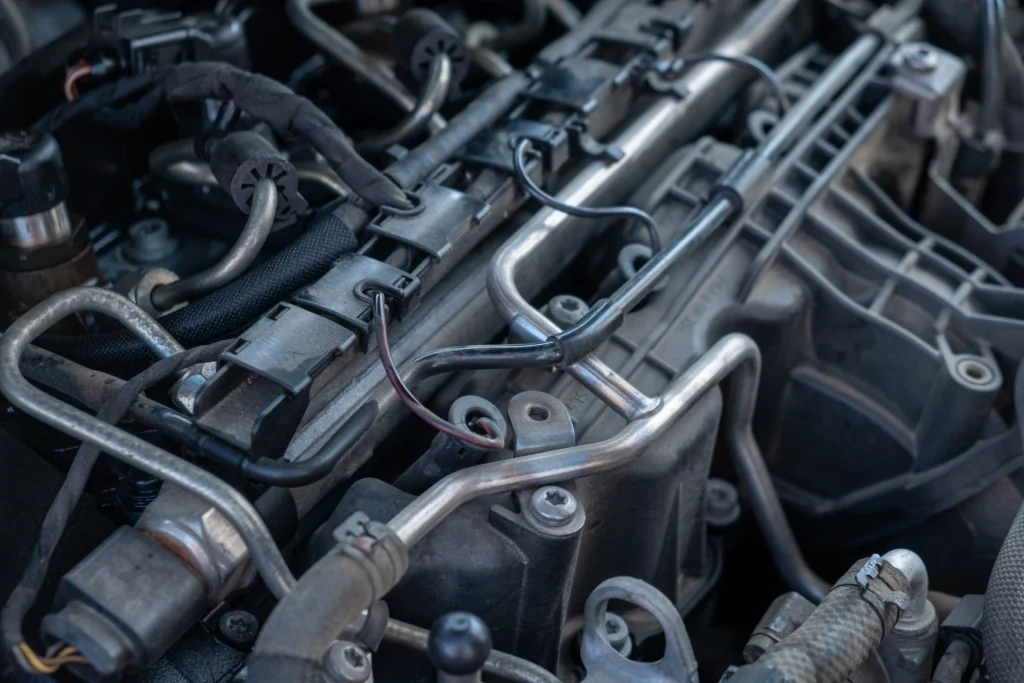
The choice of which engine you should opt for, petrol or diesel, depends on the fundamental tasks and applications you need from it. The uses can be of two types: you may want it for personal use or require a heavy engine for day-to-day business operations.
Let’s shed some light on how you can choose a better engine based on the applications and uses you seek from it.
● Heavy-Duty vs. Light-Duty Application
Diesel engines work best for heavy-duty tasks like transporting large loads and jobs that require high torque and durability. This is the reason diesel engines are used in trucks, large equipment, and machinery. They produce more power for pulling heavy loads and are more fuel-efficient over long distances.
Conversely, gas engines are important for light-duty applications, such as passenger cars and everyday driving. They offer faster acceleration and work well for shorter trips and lighter loads. They also produce lower emissions which makes them a more eco-friendly choice.
● Personal Use vs. Commercial Use
Another important factor to consider when choosing an engine type is the purpose you need it for. It may be for personal use or commercial use. If you want a car or generator for personal household use, then you should opt for gas-powered engines. Gas-powered cars, generators, or other machinery for domestic use are a better option because gas engines are less noisy and more efficient for short trips and lighter loads.
On the flip side, you should choose diesel engines if you intend to use them for commercial purposes. Since commercial settings require heavy-duty equipment, long-distance transport, and high-torque tasks, diesel engines are best suited to the situation.
Key Takeaways
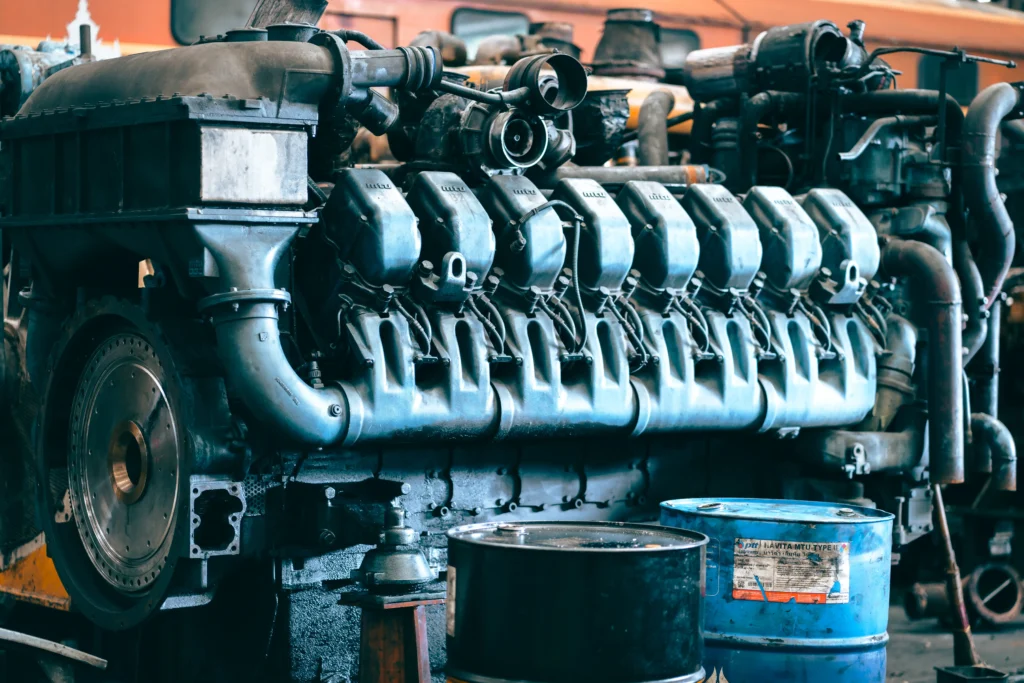
Diesel engines offer high efficiency, more torque, and better thermal efficiency for heavy-duty tasks and long distances. They provide strong acceleration and engine longevity. Alternatively, gas engines offer more refined performance, lower emissions, and better speed for everyday driving and lighter loads.
It’s up to you which engine you prefer for your business operations. If you need an engine for heavy work or long hauls, a diesel engine is a great choice. On the other hand, a gas engine might be more suitable for regular driving and lighter tasks. So, assess your needs and choose the engine that best fits your requirements.
FAQs
What pollutes more, diesel or gas?
Diesel engines produce more pollutants than gas engines. The combustion of 1 liter of diesel fuel releases about 13% more CO2 compared to the same amount of gasoline. Diesel engines also emit higher levels of nitrogen oxides (NOx) that add to air pollution.
Do diesel engines need to warm up?
Yes, diesel engines need to warm up, especially in cold weather. Warming up helps the engine reach its standard operating temperature which is important to ensure better performance. If you don’t let it warm up, the engine will work harder than required, which can lead to issues down the road.
Is diesel being phased out?
Diesel is not going away completely, but its use may decrease because of stricter environmental rules that encourage cleaner vehicles. Diesel engines will still be used for high-mileage driving and specific needs. Car manufacturers will keep making diesel vehicles for those who need them.
Is idling bad for a diesel engine?
Yes, idling is bad for a diesel engine. While some idling is unavoidable and sometimes necessary, excessive idling can harm engine components like cylinders, spark plugs, and exhaust systems. It can also negatively impact the environment. Most car manufacturers recommend avoiding idling for more than 30 seconds, as it is unnecessary and inadvisable.
Does diesel break down a lot?
Yes, diesel can break down over time. It usually happens when the fuel is exposed to high temperatures, moisture, or contaminants. However, you can prevent diesel from degrading by storing it in a clean, dry, and cool environment.
Power Up Your Favorite Engine with Fuel Logic’s Fuel Delivery Service
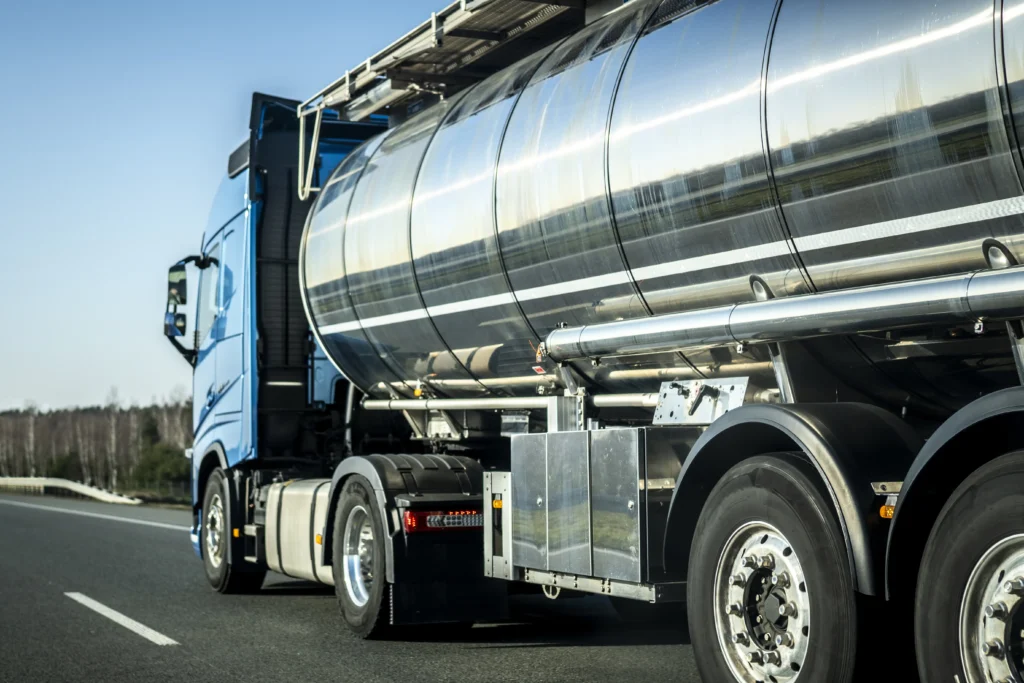
Multiple gas stations sell diesel and gasoline, but it’s important to consider whether you have the time and access to a nearby station that meets your fueling needs. If not, why not choose a fuel delivery service that offers hassle-free fueling? Fuel Logic is a trusted fuel delivery agency with a proud history of serving customers across the US.
We offer high-quality diesel, including DEF and off-road diesel. Call us now to place your order. For any questions, our friendly customer service team is ready to help. As a renowned fuel delivery company, we deliver gasoline and diesel at reasonable prices in the US whenever you need them, so you don’t have to travel far for refueling.

